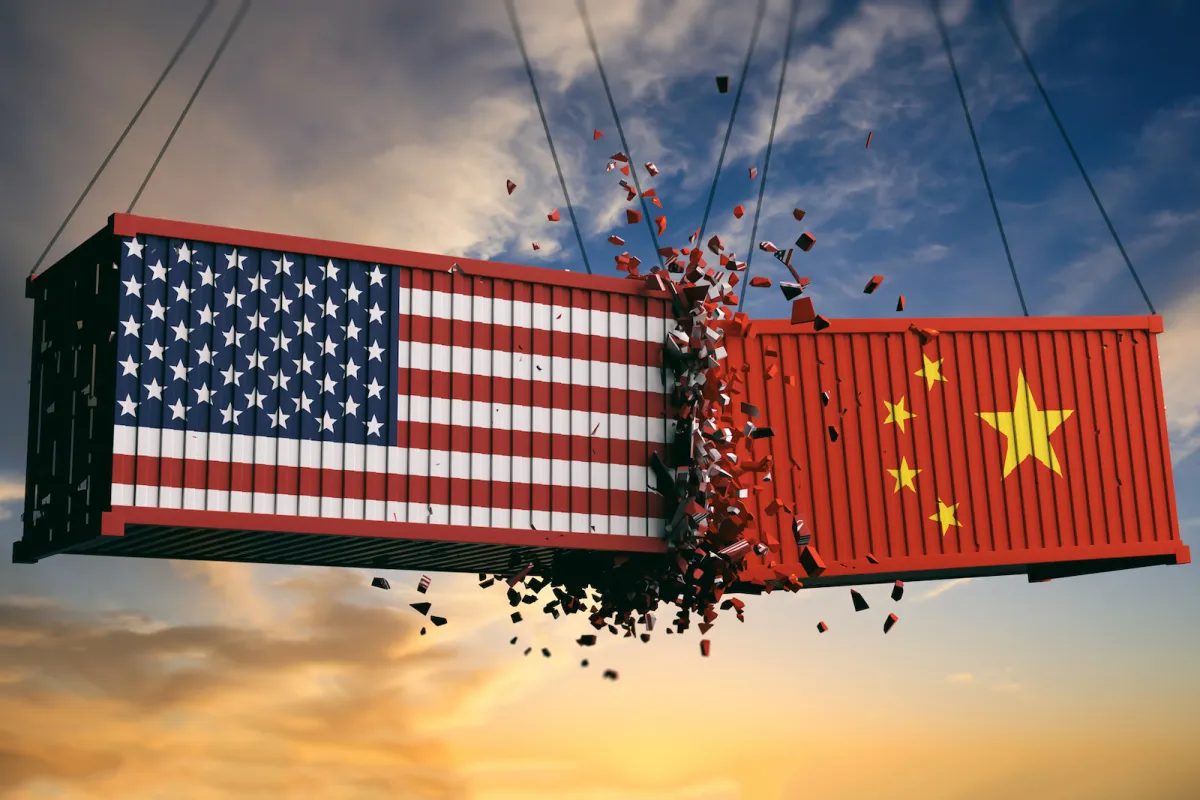China is calling for global unity in the face of President Donald Trump’s sweeping new tariffs, which have now risen to 104% on some goods from major trading partners, including China. In an editorial in China Daily, the country’s state-run newspaper, Beijing urged international cooperation, particularly with countries like Japan, South Korea, and the European Union, to resist what it describes as “trade tyranny.”
Foreign Ministry spokesperson Lin Jian emphasized China’s strong opposition to these tariffs, labeling them as “hegemonic” and “bullying” practices. The new tariffs come at a challenging time for China’s already sluggish economy, which is heavily reliant on exports, and businesses are struggling to adapt to these drastic changes in trade dynamics.
The newly imposed tariffs have left Chinese businesses scrambling to adjust their supply chains, facing uncertainty and rising costs. For many firms, the steep increase in duties is pushing profit margins to the breaking point. A Chinese business owner in cross-border logistics stated that the new tariffs significantly raise costs for companies across various sectors, from freight forwarders to factories. “It just means everyone earns less,” he said.
Dan Wang from the Eurasia Group consultancy highlighted that tariffs over 35% would wipe out any profits Chinese companies make when exporting to the US or Southeast Asia, warning that the lower export growth could severely hamper China’s economic recovery. Since exports have been a key growth driver post-COVID, the rising tariffs could result in much slower growth.
While China has not yet imposed retaliatory tariffs, there are reports that it is considering actions like banning Hollywood films and suspending cooperation on fentanyl with the US. However, these measures would have little impact on companies like Fuling, a Chinese firm that supplies disposable tableware to US fast food chains such as McDonald’s and Wendy’s. The company has already been forced to adjust its operations, opening a new factory in Indonesia, only to find that exports from there are now also subject to a 32% tariff.
The scope of Trump’s tariffs has not only affected China but also countries in Southeast Asia, including Cambodia, Vietnam, and Thailand, which have been hit with tariffs ranging from 36% to 49%. The tariffs have prompted economists to warn that they could trigger a global recession and have shaken global markets.
The American Chamber of Commerce in China has criticized Trump’s tariffs, stating that the upheaval caused by the new trade policies is unprecedented and questioning how they will benefit either country’s consumers or the broader economy. Analysts suggest that these tariffs might push China to restructure its economy and focus more on domestic consumption, which it has struggled to boost.
Tim Waterer, a market analyst from KCM Trade, believes that these tariffs are intended to suppress China, but the long-term effects could be unsustainable. “The tariffs are aimed at suppressing China,” said a manager at a Chinese freight company, noting that many Chinese businesses have already relocated to Southeast Asia. However, with tariffs now affecting those regions as well, the situation has only worsened.
Wu Changchun, a freight company manager, warned that the steep tariffs could lead to a collapse in trade. “At 104%, that’s no longer something trade-offs can fix. Trade would basically come to a standstill,” he said, highlighting the devastating impact on businesses already operating on razor-thin margins.
As global markets react and businesses navigate the uncertainty caused by these tariffs, it remains to be seen how China will respond and whether negotiations between the US and China will lead to a resolution—or further escalation.
















